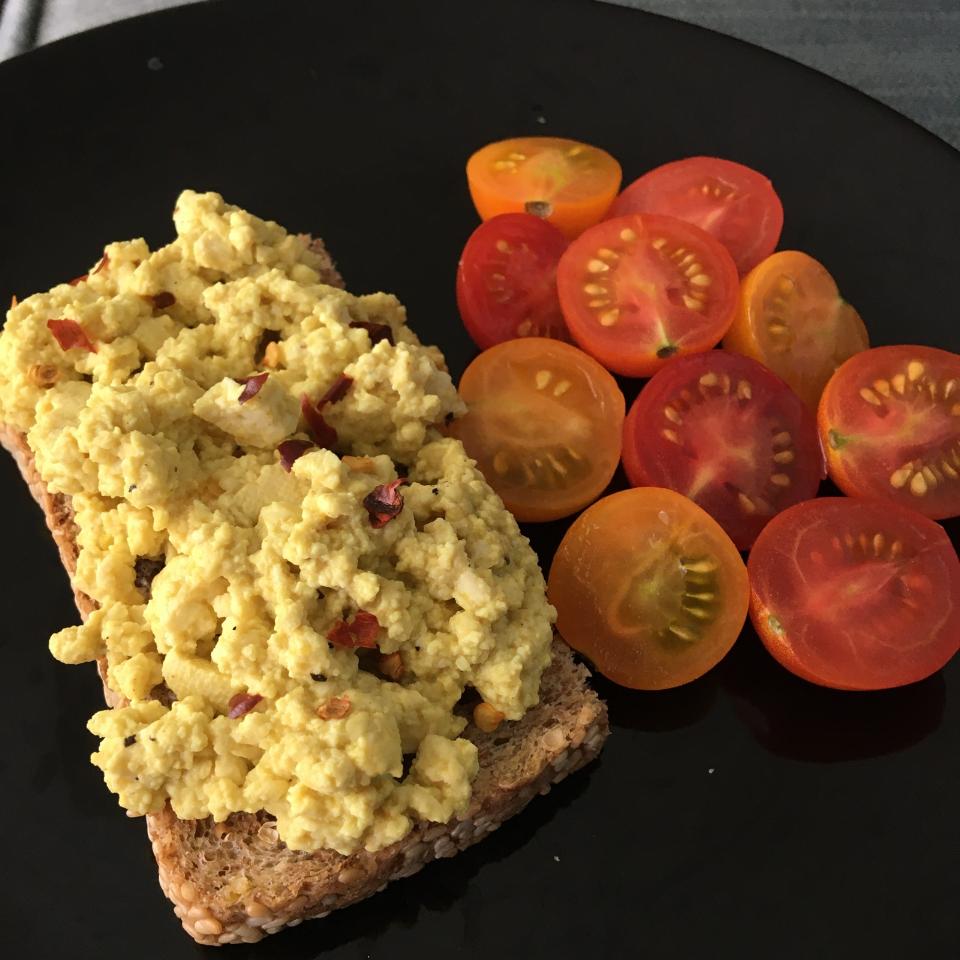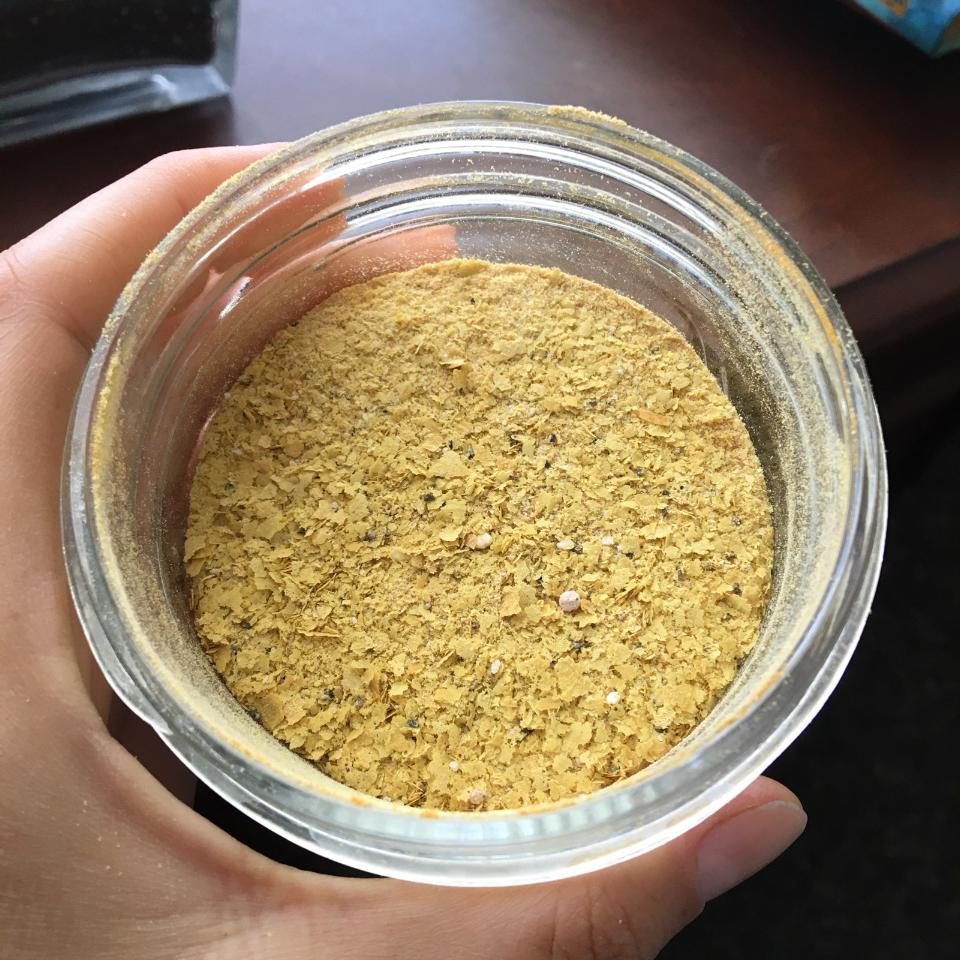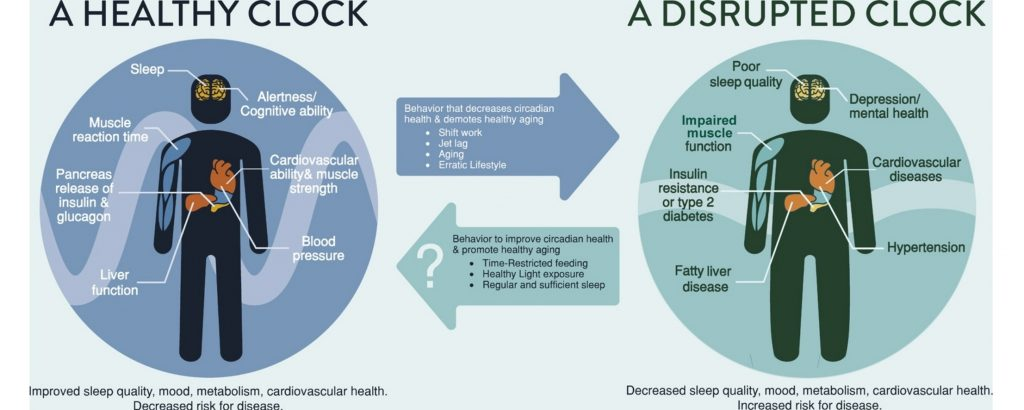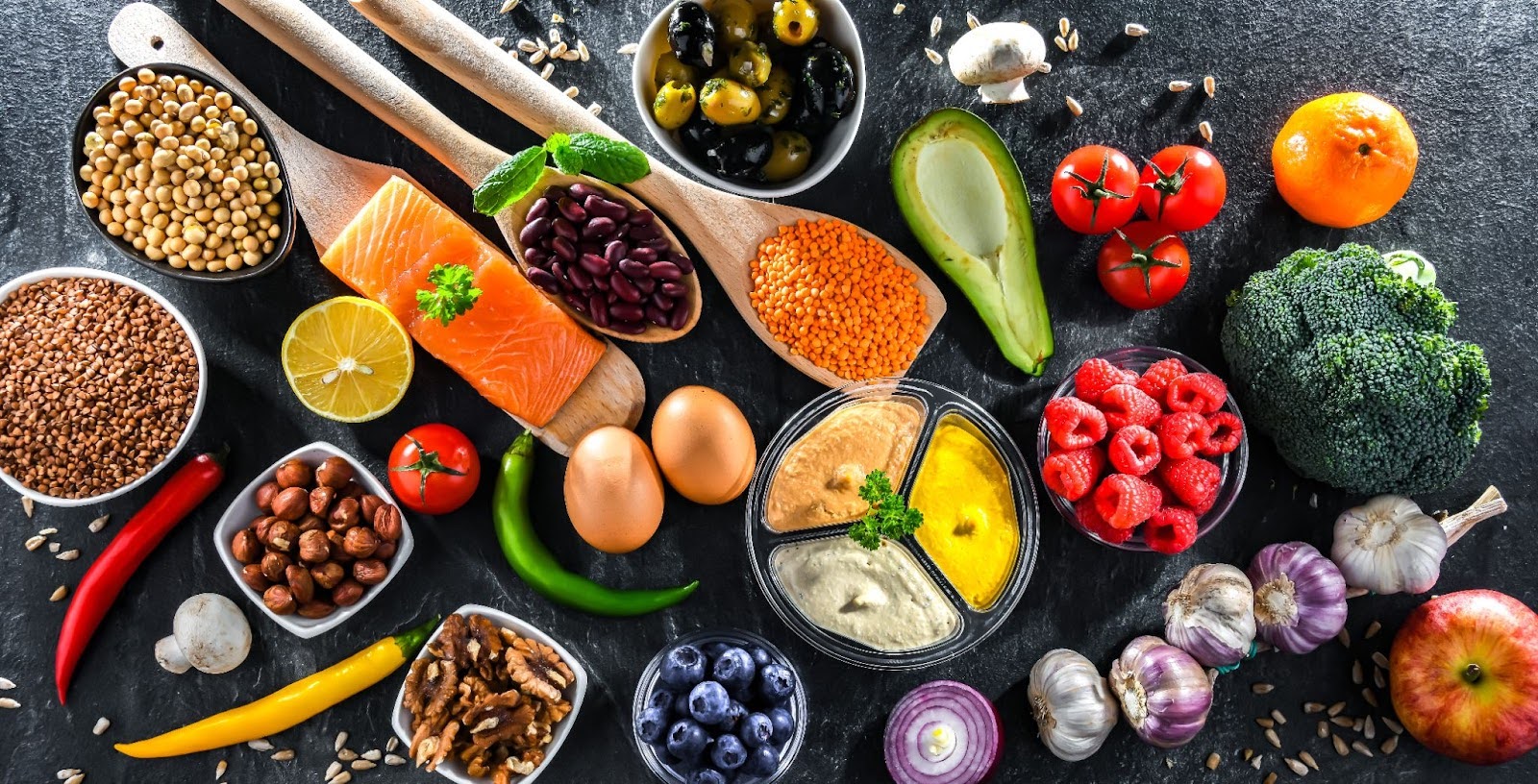I am an Intuitive Eating Counselor. I will always want you to listen to your body and try to give it what it’s asking for. Not your head, but your body. What does it tell you from moment to moment and how can you respect it? This teaching is not one I take lightly. It’s what I know in my core and in my trade.
In saying that I want you to know something strong that governs our bodies – the Circadian Rhythm. Knowing this gives us insight into our little machine that carries us around so we can work together as one, instead of opposing our biology. If we do oppose our biology, then we increase the likelihood of disease over time. Eat when you’re hungry, stop when you’re full, sure. But can you inch towards the cycle of the sun and moon a bit more?
Let’s learn.
Scientists have long known that the human body has a master clock in the brain, located in the hypothalamus, which governs our sleep-wake cycles in response to bright light exposure. A couple of decades ago, researchers discovered that there is not just one clock in the body, but a collection of them. Every organ has an internal clock that governs its daily cycle of activity.
A growing body of research suggests that our bodies function optimally when we align our eating patterns with our circadian rhythms, the innate 24-hour cycles that tell our bodies when to wake up, when to eat, and when to fall asleep. Studies show that chronically disrupting this rhythm – eating late meals or nibbling on midnight snacks for example – could be a recipe for metabolic imbalances. Yes, weight gain – I knew you were asking. But more importantly – chronic diseases such as Cardiovascular Disease, Hypertension, Diabetes, Cancer, and more.
Lots of us snack and graze from roughly the time we wake up until shortly before beddy bye. The research shows that the typical style of eating is around a 15-hour or longer period each day, starting with something like milk and coffee shortly after rising, and ending with a glass of wine, a late night meal or a handful of chips, and nuts or some other snack shortly before bed.
This pattern of eating conflicts with our biological rhythms. We can even look at our precious pancreas as an example. During the day, the pancreas increases its production of the hormone insulin (which controls blood sugar levels), and then slows it down at night. And our gut has a clock too that regulates the daily flow of enzymes that help us absorb nutrients and removal of waste. Look at our little body go!
Every single day the sun rises and at night, it falls. We’re designed to have 24-hour rhythms in our physiology and metabolism. These rhythms exist because, just like our brains need to go to sleep each night to repair, reset, and rejuvenate, every organ needs to have down time to repair and reset as well.
Most of the evidence in humans suggests that consuming the bulk of your food earlier in the day is better for your health. Dozens of studies demonstrate that blood sugar control is best in the morning and at its worst in the evening. We burn more calories and digest food more efficiently in the morning as well. When should I eat breakfast then? Within 2 hours upon waking.
If you’re constantly eating at a time of day when you’re not getting bright light exposure, then the different clock systems become out of sync. It’s like one clock is in the time zone of China and the other is in the U.S. It gives your metabolism conflicting signals about whether to speed up or slow way way down. Do you recall how jet lag feels? Eating at the wrong time of day places similar strain on the organs involved in digestion, forcing them to work when they are programmed to be dormant, which can increase the risk of disease.
A really key example are shift workers (20% of the work force!). They are important to study because of their erratic eating and sleep cycle. They end up having higher incidence of obesity, diabetes, some cancers, and heart disease. While socioeconomic factors are likely to play a role, studies suggest that circadian disruption correlates to poor health.
You must be wondering, is this intermittent fasting?
In short, yes.
But there are many forms of intermittent fasting, so this is about paying more attention to the natural light patterns, and eating and sleeping accordingly.
Of course, daylight hours change depending on the season and where you live. It may not be realistic to eat before the sun goes down in areas where that happens at 4:30 P-, before you’re even done working for the day. You must be realistic.
But although your last meal might be after dark, if it’s the lightest meal of the day, your body won’t have to work as hard to process it.
 So if I time it right, I can eat whatever?
So if I time it right, I can eat whatever?
Well of course you have free choice. But making nutrient-dense choices is critical to both holistic health and regulating weight.
We want to fuel our bodes with sustaining food that keeps our bodies healthy and strong. Healthy food feels good, am I right? So if you are noticing you do a free-for-all in the “time-to-eat window,” then it’s time to ditch the clock. This will not work for you at this time.
Some take home tips:
- If you can – don’t eat too close to bedtime, even if it’s still light out. The best time to eat is 2 hours prior to bedtime and within 1-2 hours of rising. Of course food in between when hungry.
- Eat your heaviest meal in the middle of the day. Although modern lifestyles often mean lunch is grabbed “on-the-go” or skipped entirely, your body is best prepared to process a large meal mid-day. Shift towards eating bigger meals earlier in the day by reducing dinner portion sizes a little at a time so you wake up hungrier.
- Reduce your reliance on artificial light. Begin shifting your bedtime and the time you wake up to better match the natural light. Create a routine that reduces the use of electronics and artificial lights in the evening. Blue light is too stimulating so keep that phone and computer at a distance, and if you watch TV use amber glasses that block blue light and promote melatonin production.
- Consistency: If you’re constantly shifting the times you go to sleep and rise, your body won’t be able to easily maintain its natural cycles. Although it’s tempting to stay up later on the weekends or while on vacation, you may feel more fatigued with a schedule that changes often.
- Plan ahead. Repeat after me. Bring food with you at all times! Don’t be left up to wherever you go. Plan for your body like you plan for gas in your tank (or charging your car for you fabulous electric car owners).
- Eat three meals per day to keep blood sugar levels stable. Meals should include a wide variety of vegetables, fruits, whole grains, plant proteins, and healthy fat.
- Eat within a couple of hours of waking up. Smoothies or overnight oats are a great option if you aren’t a “breakfast person.”
- Prioritize sleep. You need at least 7-9 hours of quality sleep per night. Have a nightly wind down routine and stick with it most nights.
- Ditch this plan if you find yourself more preoccupied with food and weight, and eating behavior becomes more compulsive in nature.
I’m only giving you the latest research and evidence so you can be aware and perhaps try to support your body’s natural rhythm with our dear Earth. I want to reiterate, if you find your behavior leaning towards an increased preoccupation and disordered eating, stop right there. Ditch this idea and talk with a therapist and Registered Dietitian Nutritionist.
And here’s a recipe by Studio SWEAT family member Haley (our beloved Eric’s wife) who is a master at sustainability and homeopathic recipes and lifestyle. She inspires me weekly (you simply MUST follow her on Instagram @hippiehappyhaley):
Hey everyone! Just popping in here with a personal example to go along with this wonderful article and a super scrumptious recipe. I have never been a “breakfast person”. Breakfast foods have never been very appealing to me, so I used to skip it and then start feeling weak and shaky around lunchtime and end up eating huge meals the rest of the day to make up for it. Thankfully, in the past few years that has all changed because of a meal that I have come to adore. It’s flavorful, satisfying, nutritious, and perfect for breakfast, a snack, or a light dinner.
Tofu Scramble on Ezekiel Bread Toast

- Ezekiel bread
- 1 block firm tofu
- 1 teaspoon cooking oil
- 7 tablespoons nutritional yeast flakes
- 1.5 tablespoons salt
- 1 tablespoon garlic powder
- 1 tablespoon black salt
- 2 teaspoons turmeric powder
- .5 teaspoons pepper
 Okay, first step is to make your tofu scramble seasoning! Combine nutritional yeast flakes, salt, garlic powder, black salt, turmeric powder, and pepper in a jar and shaky shake until combined. Black salt is not a common ingredient in American cuisine, but it gives the scramble an eggy flavor so it’s important! Order some online or get it at your local Indian market. Once your seasoning blend is ready, add the oil to a pan and heat on medium. Drain your tofu block and give it a little squeeze over the sink to get out the excess water. Use your hands to crumble the tofu into the pan. Stir and cook until warmed, then add 1.5 tablespoons of your seasoning blend. Stir to thoroughly combine, taste, and add a little more seasoning if desired. Toast your Ezekiel Bread to desired toastiness, top with tofu scramble, and enjoy!
Okay, first step is to make your tofu scramble seasoning! Combine nutritional yeast flakes, salt, garlic powder, black salt, turmeric powder, and pepper in a jar and shaky shake until combined. Black salt is not a common ingredient in American cuisine, but it gives the scramble an eggy flavor so it’s important! Order some online or get it at your local Indian market. Once your seasoning blend is ready, add the oil to a pan and heat on medium. Drain your tofu block and give it a little squeeze over the sink to get out the excess water. Use your hands to crumble the tofu into the pan. Stir and cook until warmed, then add 1.5 tablespoons of your seasoning blend. Stir to thoroughly combine, taste, and add a little more seasoning if desired. Toast your Ezekiel Bread to desired toastiness, top with tofu scramble, and enjoy!
The Ezekiel Bread is key in this recipe because it’s delicious and nutritious. It’s organic, made with only sprouted grains, no flour or preservatives, and has 5 grams of protein per slice. We buy ours at Sprouts and I know they sell it at Trader Joes as well. The tofu scramble stores well in a sealed container in the fridge and usually gives me and my husband 2 days of breakfasts. Once you’ve got the seasoning blend all mixed up, this meal takes less than five minutes to make. And don’t be afraid to get creative with it! We often add tomatoes, onions, or spinach to the tofu scramble, or some avocado on top. Enjoy, friends! Peace be with you.
~Haley
In health,
Miriam Jirari MPH, RD, CPT
Certified Intuitive Eating Counselor
Studio SWEAT Dietitian
Resources:
https://ideas.ted.com/when-you-eat-can-be-just-as-important-as-what-you-eat/amp/
https://www.nytimes.com/2018/07/24/well/when-we-eat-or-dont-eat-may-be-critical-for-health.html










Comments - 0